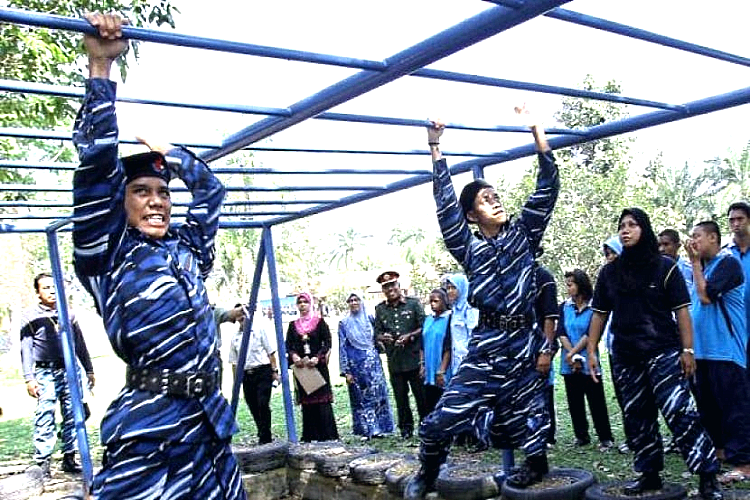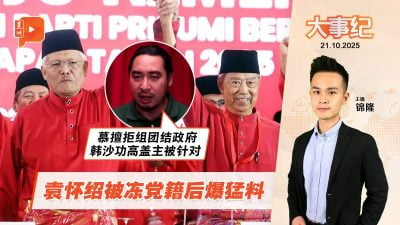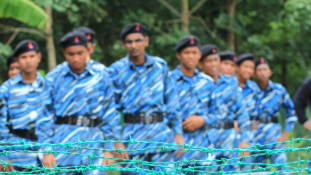
Defense Minister Mohamad Hasan said the government would reinstate PLKN (national service) in three phases, meaning the PLKN program implemented from 2004 until 2018 (suspended for a year in 2015) will be on again and be renamed PLKN 3.0, where the participants will have to undergo 45 days of training at 13 reserve camps across the country.
Each training ground can accommodate up to 20,000 trainees for a total of 260,000 people, or half of the approximately 500,000 young Malaysians of the training age each year. This means that if the program is only for male trainees, all will have to take part in it.
It is yet to be confirmed whether the revised PLKN 3.0 will be mandatory or voluntary, but given the capacity of training camps, the program will most likely be on a voluntary basis at the initial stage.
The first phase of training program announced by the government is targeting 16-year-olds or Form 4 students in uniformed groups. The second phase is for students completing their SPM examinations but not considering to further their studies. And under the final phase, trainees will freely choose to join the uniformed groups of their choice, including fire and rescue personnel, police, or soldiers.
Our PLKN program will be different from the two- or three-year mandatory national service programs that have been in force for decades in countries such as South Korea, Singapore, Thailand and Taiwan.
The 45-day PLKN training program is expected to follow the curriculum of previous versions of PLKN, with an emphasis on inculcating the spirit of patriotism among young Malaysians, promote intercommunity unity and harmony, instill the right value system and a spirit of caring and volunteerism, and produce a confident generation of young Malaysians.
While the PLKN’s short duration may not necessarily change a person’s outlook on life, at least he or she can pick up some important lessons on mutual respect and understanding.
Even though the bill of the revised PLKN program is RM100 million a year, if it can fulfill the above objectives and is relatively free from management irregularities, there are no reasons we should not support.
Imagine how often do we have the opportunity for young trainees from all ethnic backgrounds to live and learn together, go through disciplinary and physical training and learn to communicate and accommodate one another?
While the short duration of the program may not necessarily change a person’s outlook on life, at least he or she can pick up some important lessons on mutual respect and understanding.
Even if the training duration is short, young people can still learn some knowledge they won’t typically be taught in classrooms, including physical training, basic survival training, wild camping skills, and differentiation of edible wild plants, among other things. All these skills might save one’s life during an emergency.
Indeed we have heard of plenty of controversies in the past versions of PLKN, including fights inside training camps, sexual harassment, racial discrimination, bullying and physical injuries during activities. Twenty-three trainees were killed from 2003 to 2013. In view of this, it is hoped that the reinstated PLKN will be implemented with the trainees’ safety in mind.
Meanwhile, the past PLKN program that ran for 14 years cost a whopping RM8.4 billion, half of which was for the lease of training grounds, not including other expenses such as the uniforms for trainees, food, books, transport, etc., which could be a bone of contention especially if these items have not been openly tendered.
Although the cost of the revised PLKN will be trimmed to RM100 million annually, more transparency in procurement and expenditure is utterly essential.
We believe many parents might shiver at the thought of having to send their children to PLKN camps. But then why not look on the bright side of the process which will provide a valuable growth experience for our children who will learn to get along harmoniously with their fellow Malaysians of other races and faiths, and be more tolerant and accommodating?
ADVERTISEMENT
ADVERTISEMENT








































